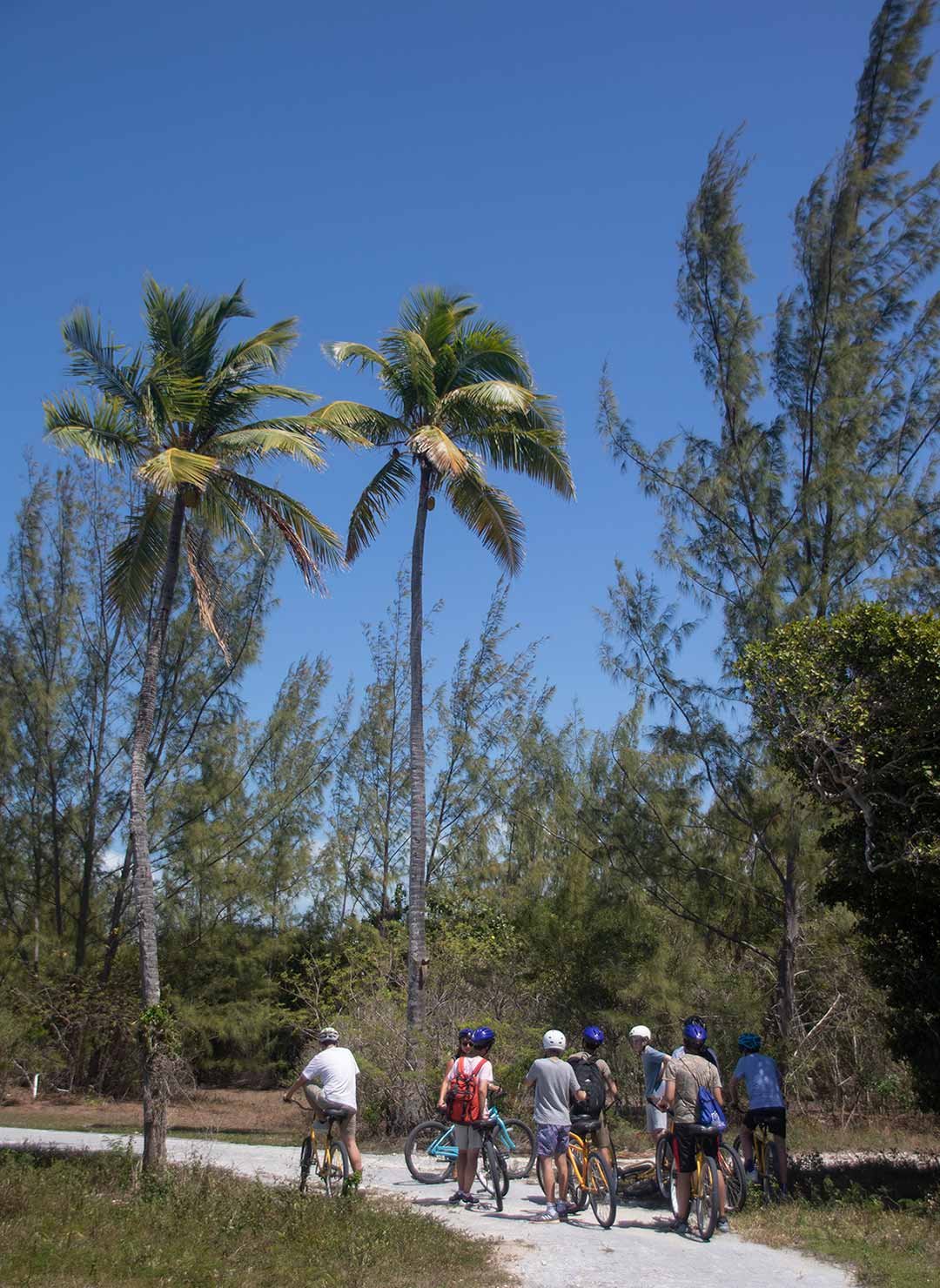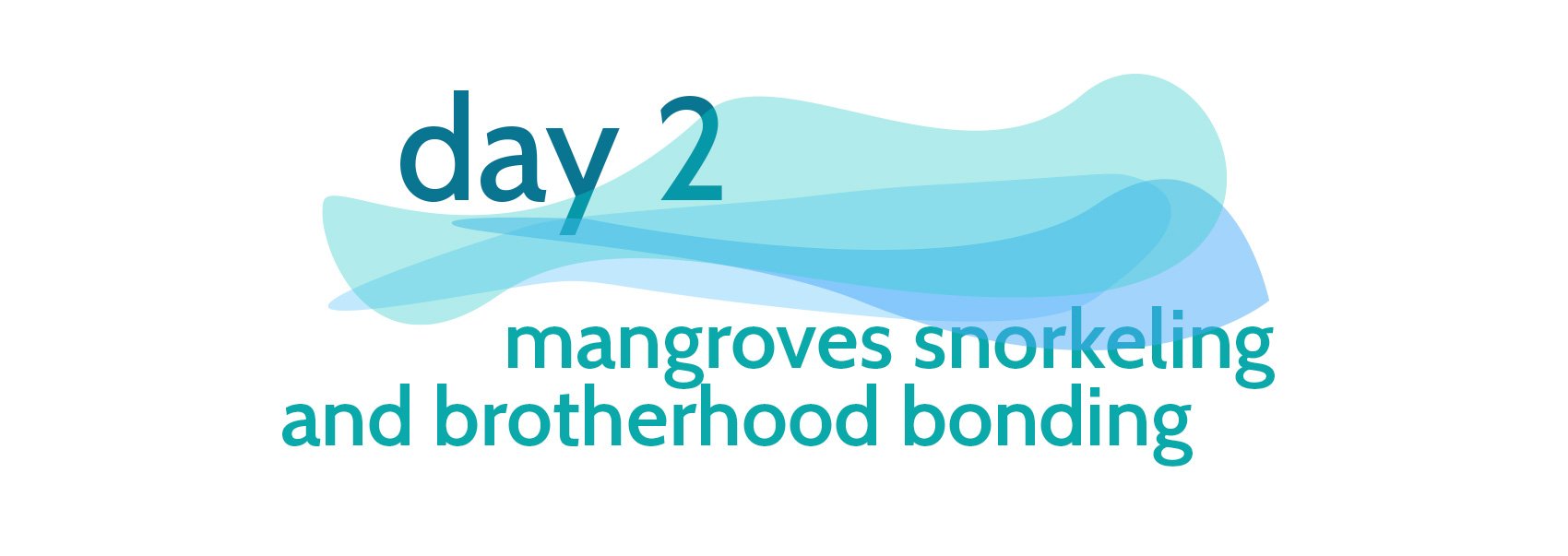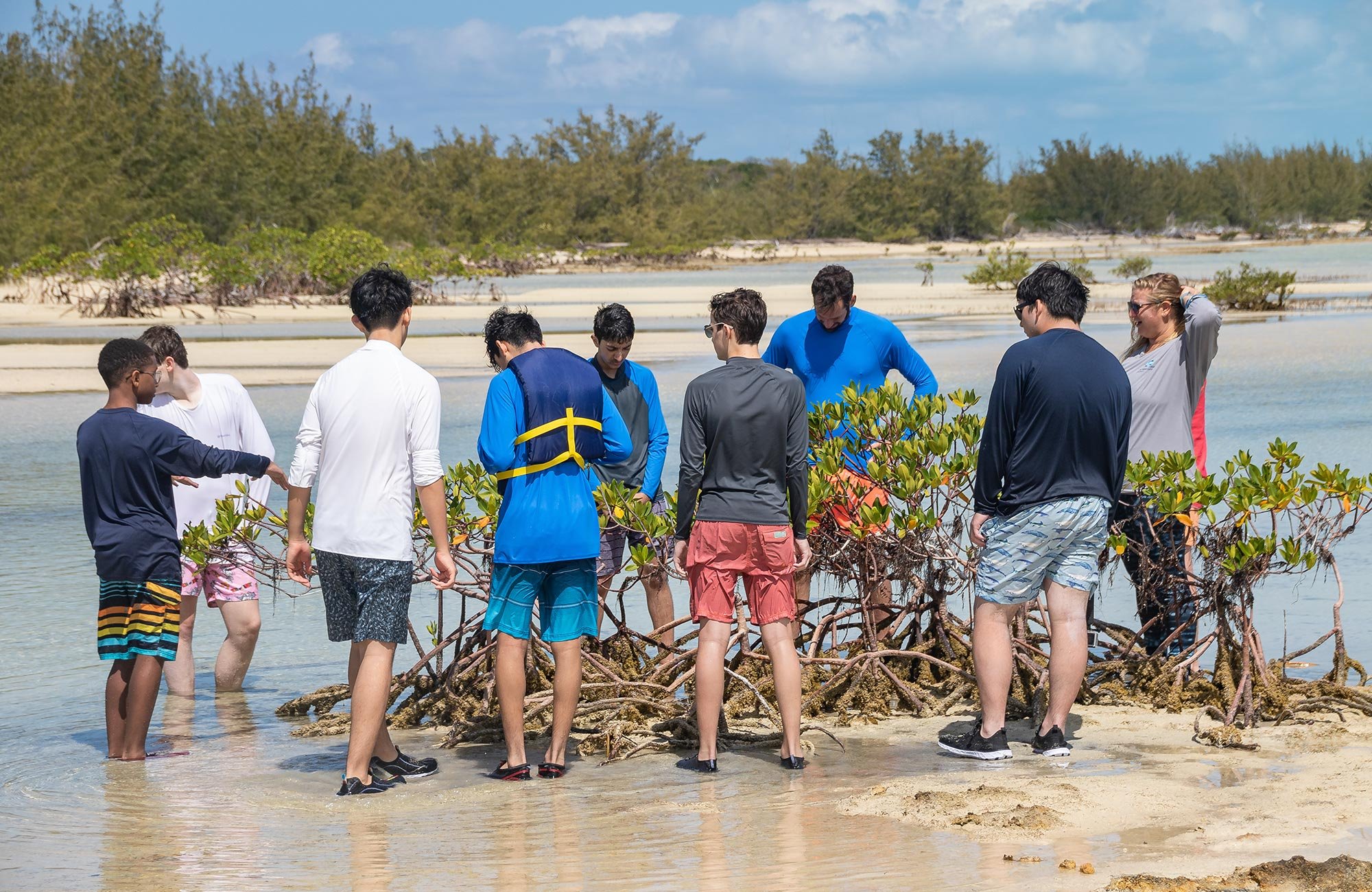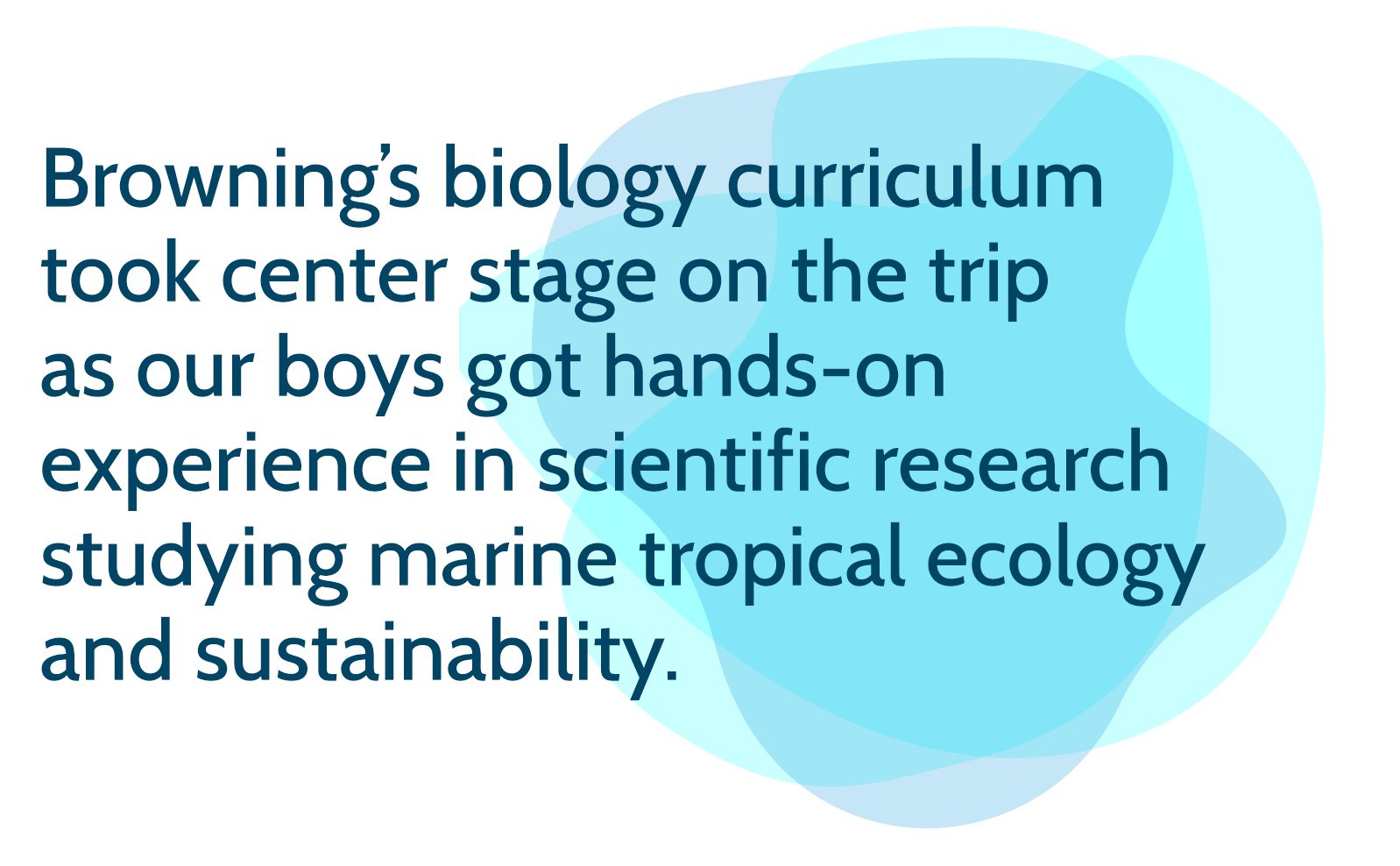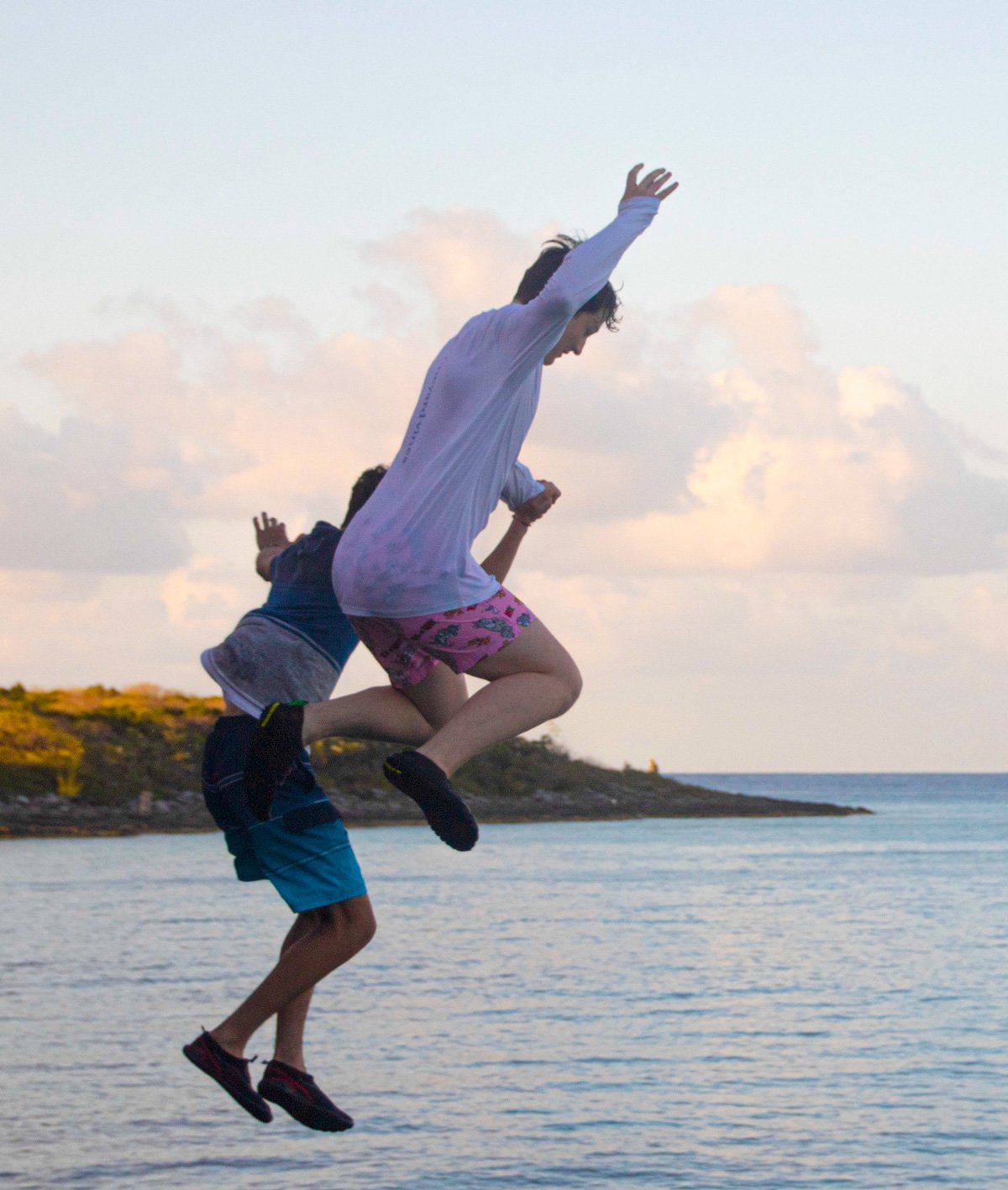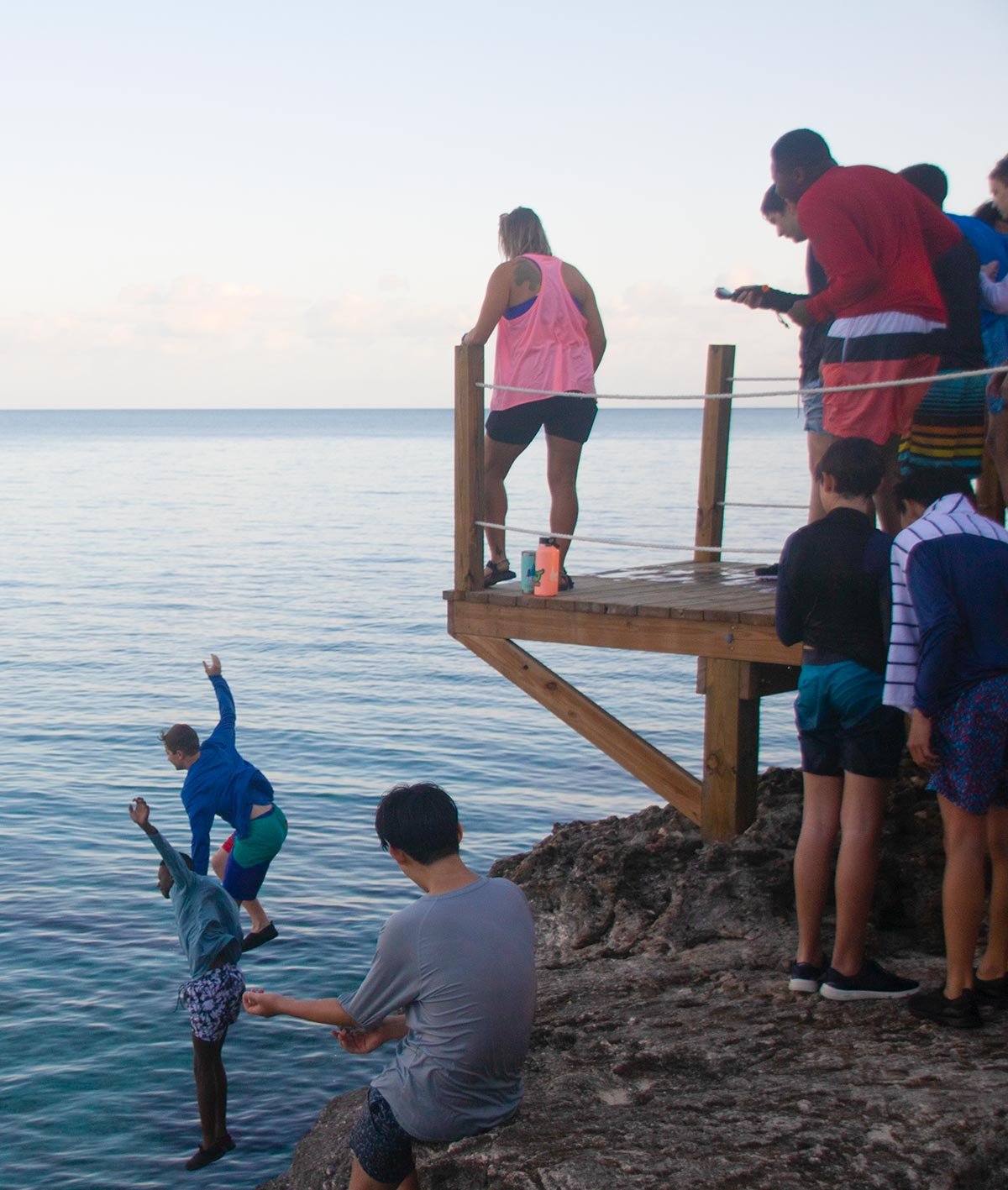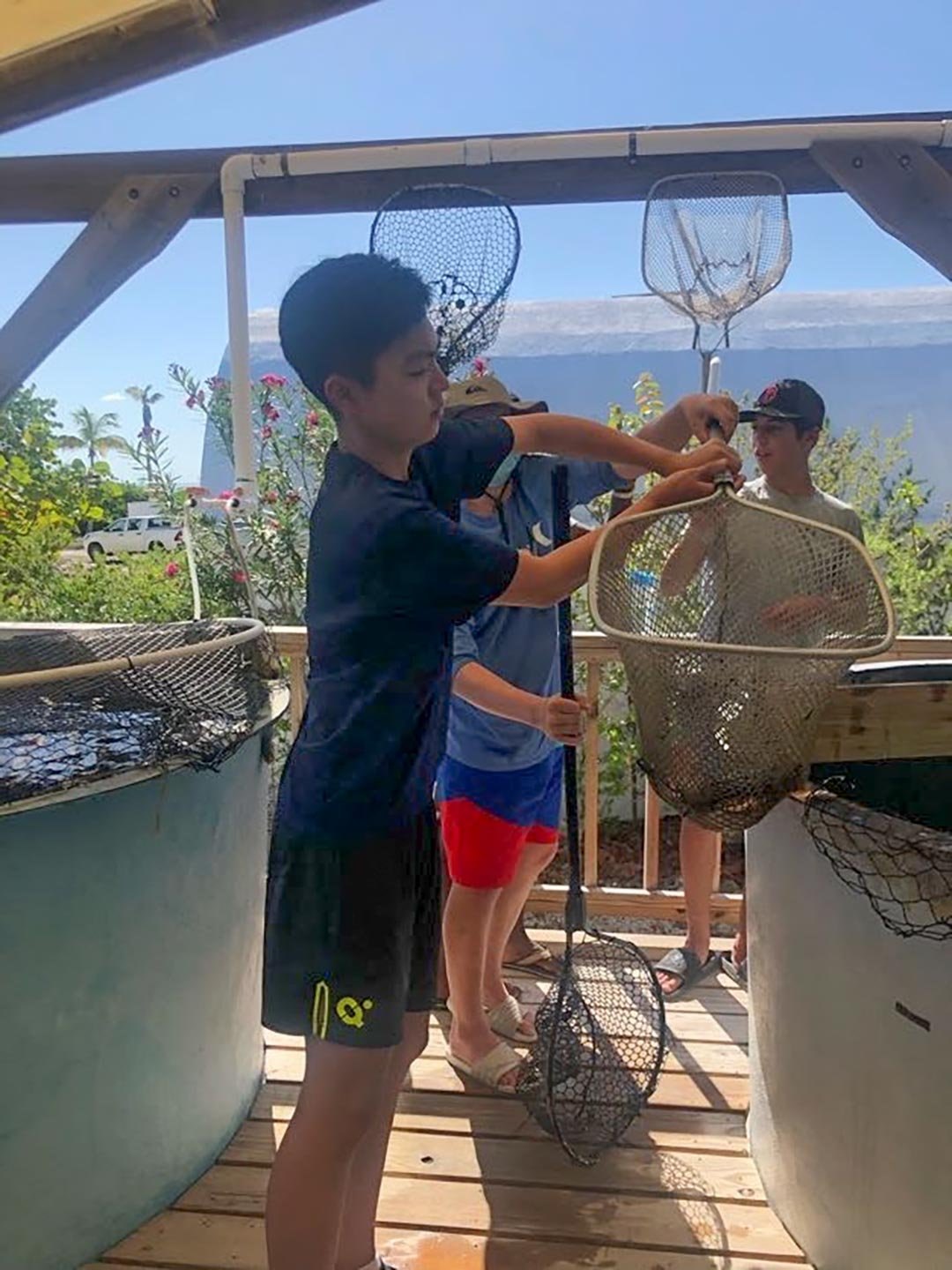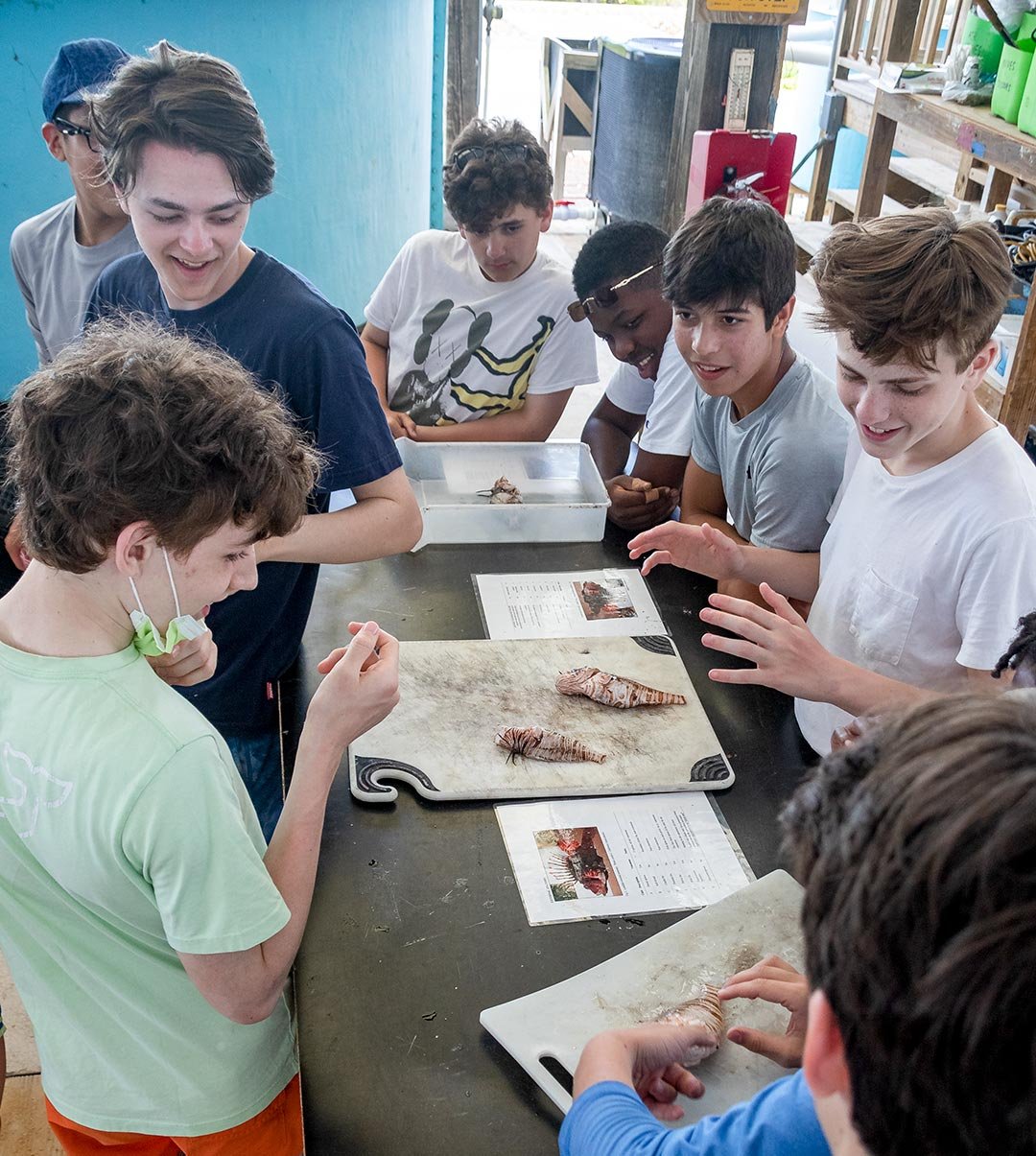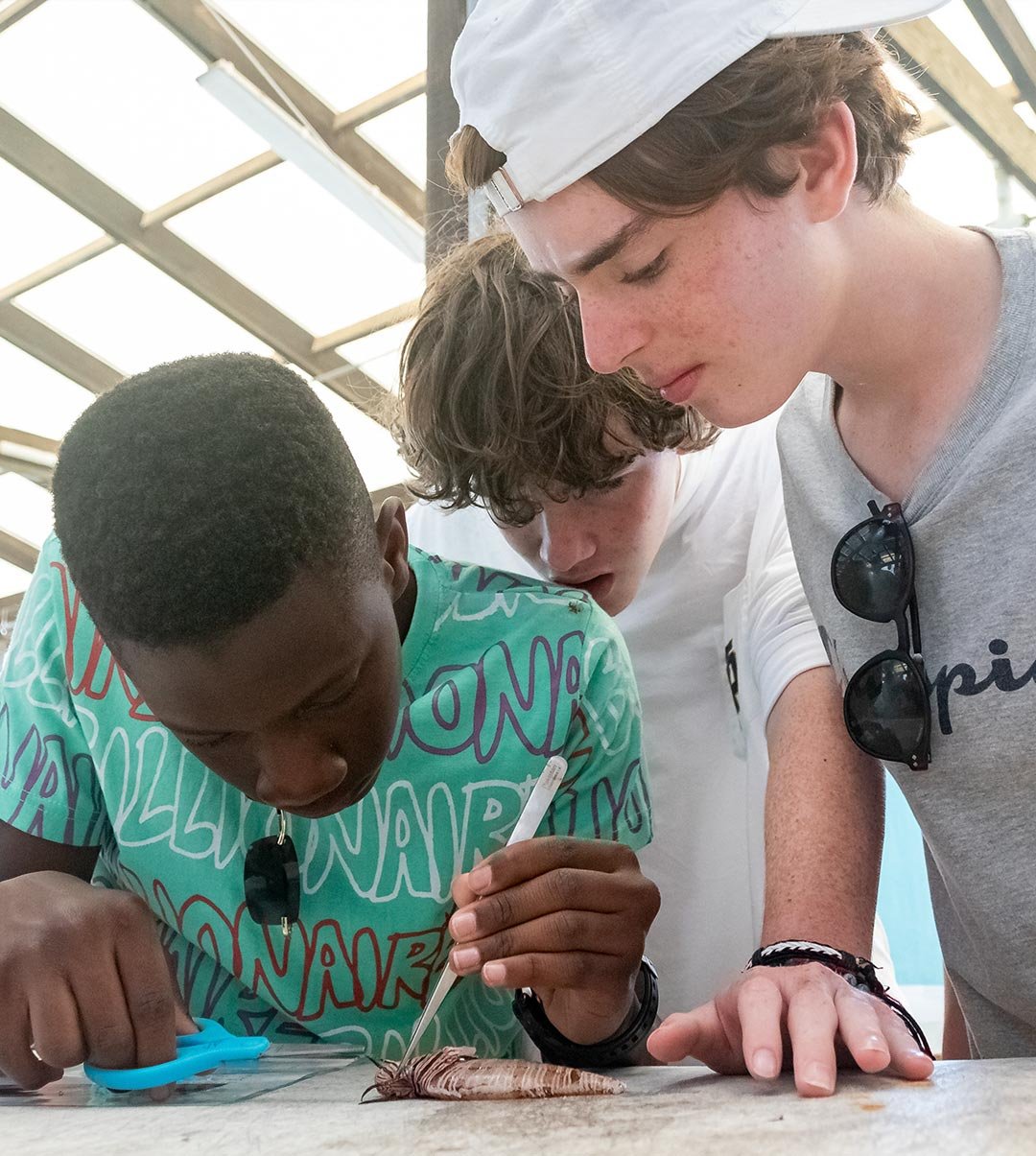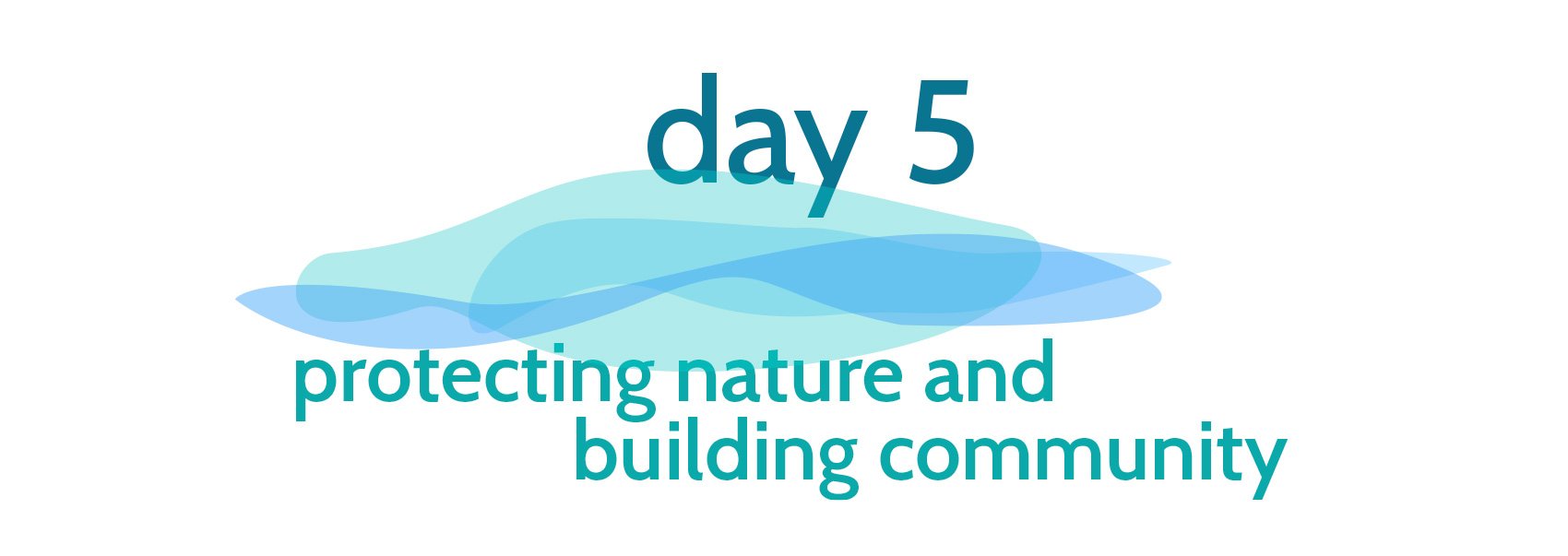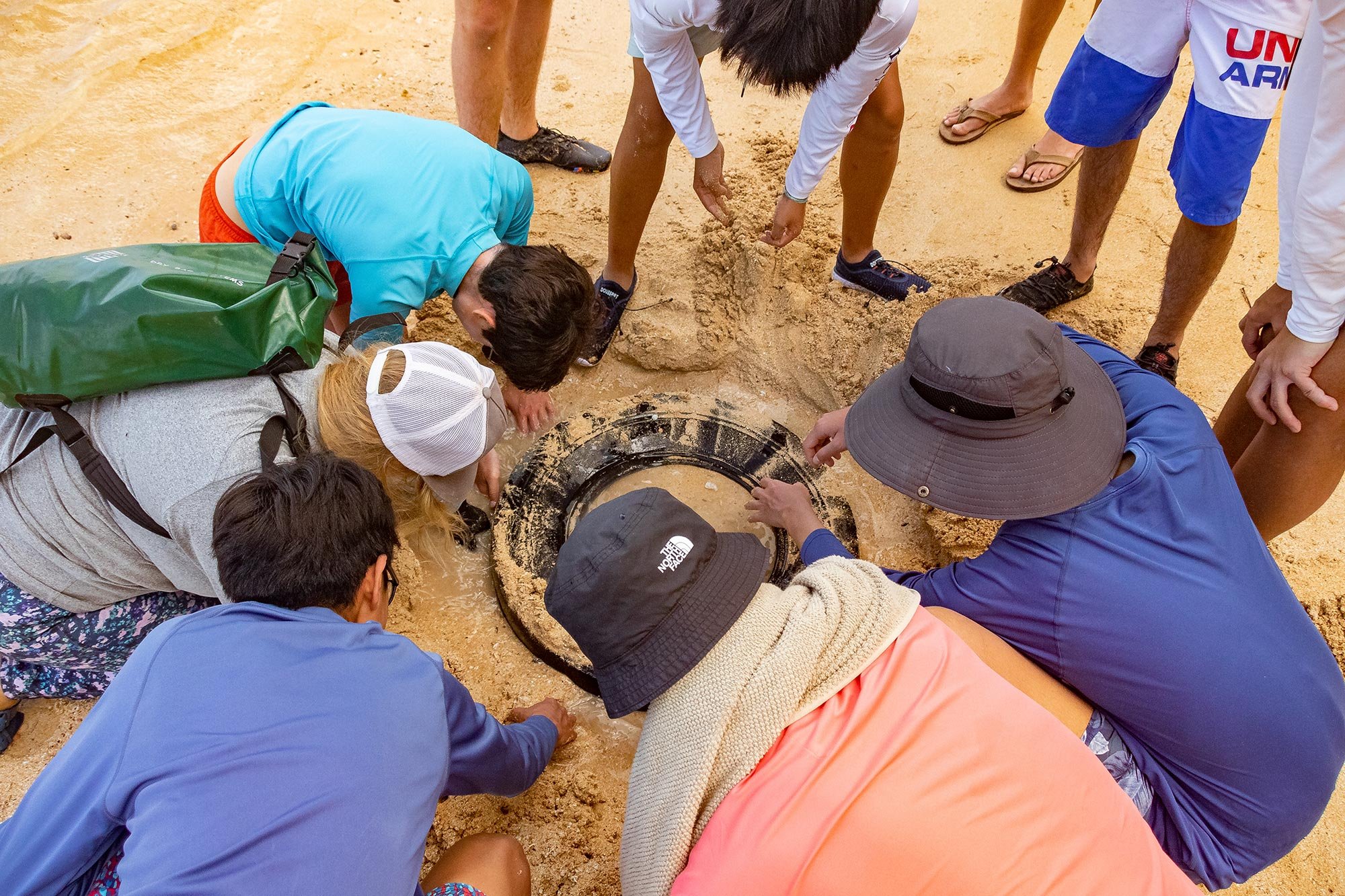From One Island to Another
Island School trip helps freshmen develop global perspective and ecological awareness.
Experiential learning is foregrounded during the annual freshman trip abroad to The Island School in Eleuthera, The Bahamas. The trip, which moves the boys out of the traditional classroom, teaches them how to conduct scientific research, live sustainably in the 21st century, and engage in the process of inquiry to discover solutions to real-world problems.
Get swept away to Eleuthera and follow along on the class' journey day-by-day in the photo essay below.
Browning’s partnership with the Island School provides a campus and surrounding ocean as the Grade 9 boys’ laboratory for a week. The program nurtures students into intentional leaders and responsible stewards of the environment.
With a focus on conservation and sustainability through experiential education, this trip is designed to inspire and educate Browning students through discovery, community service, ecology, science, technology, and adventure.
Freshmen acclimate to their surroundings with a bike tour and a scavenger hunt.
Snorkeling at a barrier reef provides data collection for the boys’ semester-long marine biology research projects.
The boys collect data while snorkeling through a mangrove creek that surrounds the campus harbor, as they explore human impacts on the environment. The exploration of the mangrove creeks educates the boys on the detrimental effects of coastal development to the habitats of various native species.
The boys’ findings will eventually be submitted for consideration in Harvard University’s Journal of Emerging Investigators (JEI), which has published Browning manuscripts from a previous trip.
A Navy SEAL inspired team-building exercise inspires confidence-building and bonding among the boys as they jump off the high rocks of Eleuthera.
Browning brotherhood on high as classmates take leaps of faith together into the waters below the high rocks amidst cheering and clapping.
A visit to the campus' aquaponics system is intended to teach the boys how to live more sustainably with food consumption, as the boys learn how the Island School produces a significant amount of their own food on campus, including premium quality fish and vegetables.
The boys are tasked with monitoring and refining the system as they filter fish waste out of water holding tilapia in the aquaponics system.
The students receive a permaculture education as they plant seeds while learning about local fruits and plants with medicinal properties.
With help from the Cape Eleuthera Institute (CEI), a dedicated center for research and innovation, the boys spend a day examining marine ecology impact. The students learn what can be done to protect the area from the invasion of the venomous lionfish, which are having detrimental impacts on coral reefs.
The boys dissect lionfish, an invasive species to the area, investigating stomach contents, as well as gills and eye lens.
With eradication not possible, the capturing and consumption of lionfish in the community is encouraged.
The class participates in a survey study of the island’s conch seashells, which are ecologically, economically, and culturally important to The Bahamas. The overfishing of conch has caused massive declines in populations, and conservation efforts are greatly needed to promote a healthy and sustainable conch fishery in the Bahamas.
Boys measure the size of conch shells to determine the approximate age of conch.
Measuring the age is used to determine whether fishermen are following the laws and allowing conchs to become adults and have opportunities to reproduce.
The boys engage in meaningful service experience, developing teamwork and attitudes to benefit the local Eleutheran community. A beach clean-up teaches the boys how it becomes the islanders’ responsibility to dispose of trash when you live in a community without infrastructure and systems to sustainably manage the waste that the shorelines collect.
Without a landfill, both the marine environment and island community is impacted by trash brought in from the ocean.
A spirit of camaraderie permeates as boys work side by side to keep the beach clean.
Grade 9 boys on their last day of the trip.




